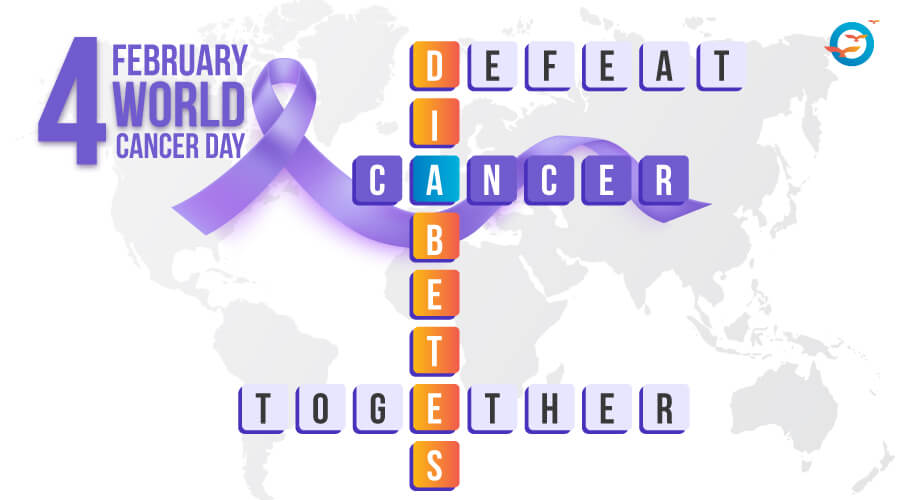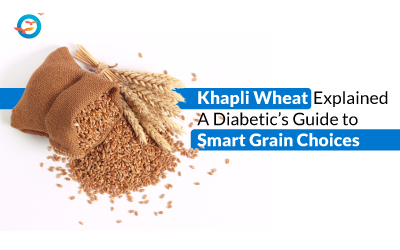Diabetes and Cancer: Does Diabetes Cause Cancer?

Diabetes brings a complex and long list of complications, from the more common complaints of vision, BP, cardiac damage to lesser-known but nevertheless troubling ones like IBS, bleeding fingers and toes, and others. These problems are caused ultimately by the high glucose content in the blood.
Since blood necessarily travels to every organ in the body—big and small—it follows that damage is bound to occur in large and smaller organs. This is why long-term diabetics are known to suffer the spectrum of ailments from heart disease to kidney failure. Research has shown a strong connection between diabetes and cancer.
Understanding the Diabetes-Cancer Connection
Like any other cell in the body, cancer cells need nutrients too, which they receive through the blood—just like any other body cell. One of the biggest risk factors for both diabetes and cancer is obesity. This is because both stem from metabolic abnormalities, and this increases the risk of cancer in diabetics.
Often without the diabetic even being aware of the danger. Directly or indirectly, factors like hyperinsulinemia, hyperglycemia, dyslipidemia, chronic inflammation, changes in the gut microbiome all contribute to the progression of cancer.
People with out-of-control Type 2 diabetes have a 39% higher risk of developing cancer. Men are more likely to suffer prostrate cancer. Women have a 17% higher risk of getting breast cancer. There’s more bad news.
People with type 2 diabetes are also likely to develop cancers of the liver, pancreas, and colon. However, there is far less evidence of a link between cancer and type 1 diabetes, although a few studies have reported that these patients are at a higher risk from stomach, cervical and endometrial cancer.
If you have pre-diabetes, you are still at risk. Studies have shown an association between pre-diabetes and increased cancer risk of;
- Colorectal
- Lung
- Liver
- Ovarian
- Pancreatic
- Prostate Cancers
These findings correspond to a certain extent to the increase in testing and improvement in diagnostic technology.
Medicines like sulfonylureas can actually increase cancer risks—except for Metformin, which is reported to have anti-tumor effects—by elevating insulin levels and promoting tumor activity. Long-acting insulin therapy also makes type-2 diabetics more susceptible to cancer.
Some Signs to Watch Out For:
- Fatigue
- Weight loss/gain for no known reason
- Eating problems such as not feeling hungry/ trouble swallowing
- Swelling or lumps
- Non–healing ulcers
- Persistent cough
- Bleeding or bruising with no visible cause
- Sudden change in bowel movement—constipation/loose motions, for instance
- Painful urine, frequent urination, blood in the urine
- Fever or nights sweats
- Headaches
- Mouth changes such as sores, ulcers, bleeding, pain, or numbness
Reducing the Risks
It’s not all bad news though. The primary reason for Type 2 diabetes and cancer is obesity.
Reducing weight through actions like cleaning up one’s diet, becoming more physically active, and getting adequate and proper sleep, can reduce weight and decrease insulin resistance and chronic inflammation, effectively reducing the risk of developing cancer.
FFD’s programs, like the Transformative Residential Program (TRP) and Holistic Transformation Program(HTP) offer a structured and guided path to diabetes reversal. The programs. which are built around four protocols—diet, exercise, stress release, and medical supervision, have helped more than 15,500 former diabetics stop all medicines and live normal, healthy lives.
For more information about our programs, contact us using the link below

